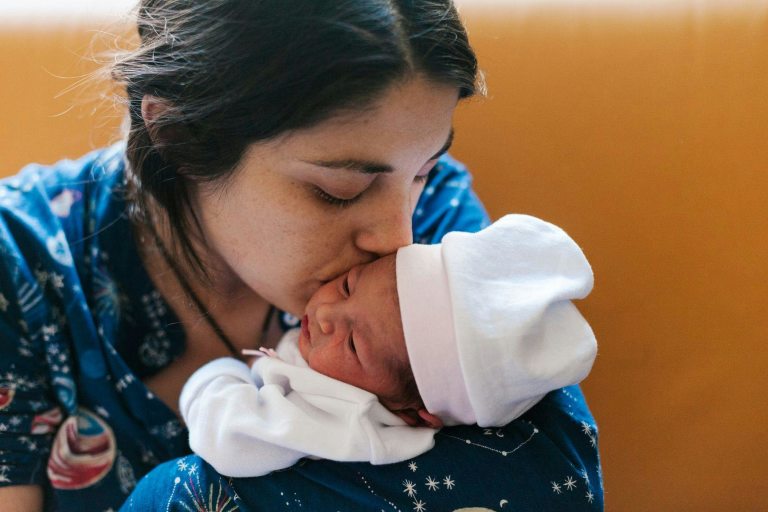
Here’s What I Wish I Knew Before Becoming a NICU Parent
We asked parents who have been there—for planned and unplanned NICU stays—for tips on what to expect and how to make it easier.

Having a NICU baby can bring on a range of emotions, from concerns about your baby’s health to navigating your postpartum recovery and adjusting to becoming a parent when your baby doesn’t come home with you. We asked three Babylist parents how they navigated their babies’ NICU stays, and whether they were under NICU care for a few days or a few weeks one thing was clear: each parent wished they had learned more about what a NICU stay is like before giving birth.
1. Prepare for the possibility of a NICU stay.

No matter how your pregnancy is progressing and what your risk level or medical history is, Emily Levada, a mom of three (including premature twins), recommends asking your OB about what would happen in the event you need to deliver early or if the baby develops a complication that would require a higher level of care. “There are so many things that can go wrong during pregnancy and after birth, and I had the mentality of ‘I can’t learn about everything, so I’ll have to cross that bridge when I come to it,’” Levada says. “But given I was having twins, I wish I asked my doctors more. It wasn’t a line of questioning I even thought about.”
One thing you can do now: Take a look at what resources your hospital or birth center has available. While you may not be able to choose your hospital (where you give birth is often determined by where your OB has privileges to practice), there are different levels of NICUs, so the hospital you plan to deliver at may not always have the resources your baby will need.
And it can be helpful to know that in advance. For example, in some cases, babies are transferred to a different hospital with a higher-level NICU while you remain a patient at the hospital where you delivered.
2. Recognize things may not always go according to plan.
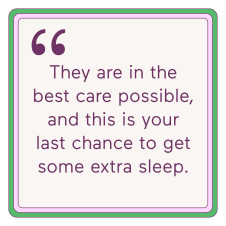
Giving birth is an emotional rollercoaster under any circumstances, but especially so with a NICU baby. Sara Levy, who delivered her son at 34 weeks after developing severe preeclampsia, tells others that it’s important to allow yourself to grieve your birth/coming home expectations vs. reality. “I was absolutely devastated when I found out he would have to stay until his due date,” she says. Although he ended up only having to stay two of the six weeks, she still describes the NICU journey as one of the hardest things she will hopefully ever go through. “While I was spending 10+ hours a day at my son’s side, it also gave me time to recover and regain strength before bringing him home.”
Ashley Capeloto, who expected a NICU stay for her son due to intrauterine growth restriction (IUGR), tells parents-to-be who may find themselves in a similar situation to “spend as much time as you want or need with your baby” but to take care of themselves and rest up too. “They are in the best care possible, and this is your last chance to get some extra sleep,” she says. “It gave me such peace of mind knowing that he was being monitored 24/7, but there were medical professionals also watching the monitors and could react if needed.”
3. Draft a support team to advocate for you and baby.
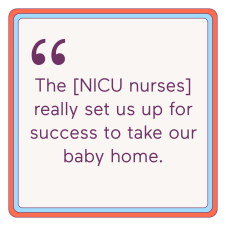
There’s a lot of advice around creating a birth plan and arranging for caregivers for older siblings (fur and human), and while that is true, you may also want to think about what that team would look like should you have a NICU baby. Levada suggests planning on having another person at the hospital with you as much as possible—whether your partner, another family member or postpartum doula—to help be an advocate for your baby, and for you too, especially if you’re still recovering. There may also be times when you’re not up to going to the hospital, so establishing a backup plan in advance for who will stand in if you get sick or aren’t feeling well may come in handy and take some pressure off yourself. “One of the hardest parts about having babies in the NICU was the impact it had on my postpartum mental health,” Levada says.
Besides your own personal care team, you can count on the NICU nurses to be your eyes and ears when visiting hours are over and show you the parenting ropes. ”They taught us how to feed him, change him, burp him…you name it,” Levy says. “They really set us up for success to take our baby home.”
4. Think about how you want to approach feeding.
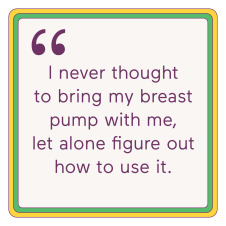
Whether you plan to breastfeed or formula feed, it’s always a good idea to have formula at home if you suddenly need it. But parents who want to provide breast milk to their babies by breastfeeding often don’t think about the possibility that they may not be able to do so right away, whether it’s because of their milk not coming in, it being too taxing on a premature baby, or the doctors wanting to quantify how much milk baby is actually getting. “I knew I wanted to breastfeed but was so unprepared to pump in the hospital and wish I prepped more for this possibility,” Capeloto says. ”Because my son was so little, they didn’t give me the option [to breastfeed] while he was in the NICU, and I never thought to bring my breast pump with me, let alone figure out how to use it.”
Renting a hospital pump is often an option, which Capeloto ended up doing. She found it helpful to have her regular pump at home and the rental at the hospital so she wouldn’t have to transport the same one back and forth each day.
5. Consider extra monitoring for when you get home.
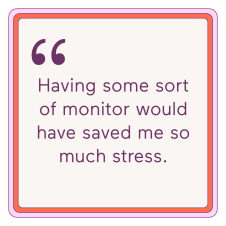
Those hospital monitors can become a source of comfort over the course of a NICU stay. “You get used to the constant feedback from the machines, so there’s a lot of anxiety around the idea of, ‘What if my baby stops breathing again? Will I even know?’” Levada says. “It was very strange taking my twins home and being unplugged.”
If you’re coming home from the NICU or think you might be the type of parent who benefits from extra peace of mind, movement monitor that tracks vitals similar to the ones available in the NICU could help with the transition home. Capeloto also says she wasn’t expecting to have anxiety to the degree that she did after her son’s NICU stay. “I ended up taking him to the doctor because I was so convinced he wasn’t breathing normally…but he was!” she says. “Having some sort of monitor would have saved me so much stress.”
While there’s a delicate balance between preparing for all of the directions your pregnancy could go in while still allowing yourself to enjoy the experience, learning about the NICU can help you navigate it with a bit less stress if you find that baby needs the extra care.
